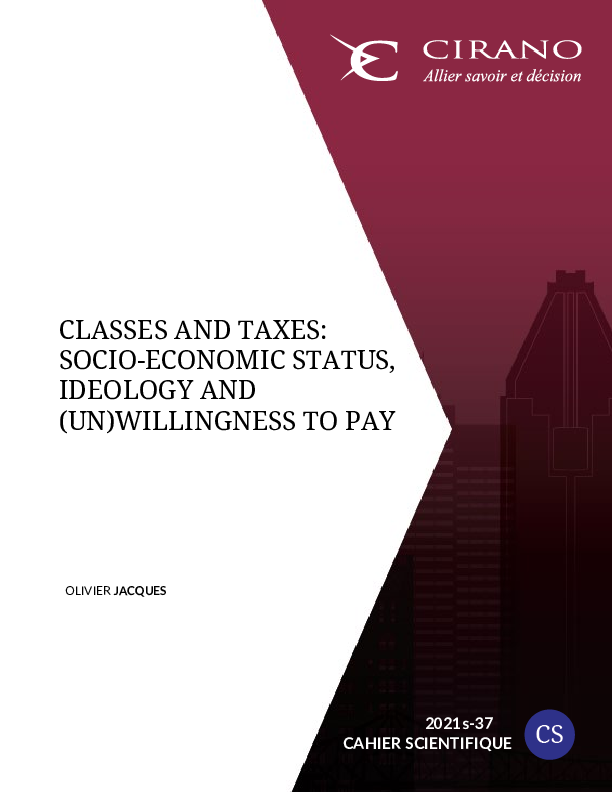Classes and Taxes: Socio-Economic Status, Ideology and (Un)Willingness to Pay
While public opinion research has identified the drivers of preferences for tax progressivity, public spending and support for redistribution, the study of willingness to pay taxes remains underdeveloped. This paper uses the 2016 ISSP cross national survey on the Role of Government and the Risks that Matter survey (OECD 2018) to identify which groups of voters are more likely to be willing to pay higher taxes. It shows that ideology and income interact to predict willingness to pay. Among left-wing respondents, socio-economic status, measured by income and education, has a positive effect on willingness to pay additional taxes. Thus, the core constituencies of left-wing parties composed of socio-cultural professionals and of production and service workers have different tax policy preferences. Socio-cultural professionals have a higher socio-economic status and are significantly more willing to pay taxes than production and service workers, who share a lower socio-economic status.




